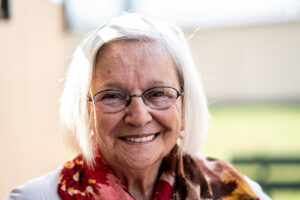You might be relieved. Your mother has decided on an elder care option, and it’s been long overdue. You might have been acting as her primary caregiver for a while, but it was wearing you out. She has finally agreed on assisted living.
Assisted living is truly one of the best, most effective, and safest elder care options available for many seniors. It might not be ideal for everyone, but you are confident your mother will have a wonderful time and experience a higher quality of life there than what you perceive she’s had struggling with so many things at home alone, with only you to help her when your schedule permitted.
Now that she has chosen this elder care option for the future, it’s time to get planning. Below are three things your mother should get ready now for this move to assisted living. Whether this move is happening later in the week, later in the month, or a few months from now, it’s never too early to start planning.
1. The furniture she’ll be taking.

Assisted Living Mobile, AL: Moving to Assisted Living
If your mother is moving from a house into assisted living, there’s going to be a lot of furniture and other items she will not be able to take with her. Even if she chooses a room by herself rather than sharing one, there’s only limited space.
Find out the dimensions of the room and whether she’ll be sharing it or living alone, which will give you and her an idea of the space.
Each facility may also have its own requirements on what they allow seniors to bring with them, whether they can hang pictures on the wall, or if certain types of furniture or other things are allowed or not.
By planning as early as possible, your mother can figure out what to do with everything else she can’t keep, such as whether she’d want to move into a storage facility for now, see if other children or grandchildren, friends or friends of family might want them, and so forth.
2. Her medical paperwork.
She certainly has the right to privacy, but for seniors who move into assisted living, if they have any type of health issues, it’s best that they have this paperwork handy, even if they don’t want somebody else to have it at that time.
In the event of an emergency, staff members at the assisted living facility will need to be the answer as many specific questions to medical professionals as possible.
3. Contact information.
This includes phone numbers and perhaps addresses. This might be for you, other family members, friends, doctors, a lawyer, if necessary, and so on.
In this day and age, many people have absolutely no idea what phone numbers are for other people. They simply store them on their phone, pull up their name, and hit ‘send’. That may be fine for most people, but it’s best to have contact information written down for staff at assisted living in the event they need to reach out to somebody, whether it’s their doctor or a family member or friend.


Follow Us!